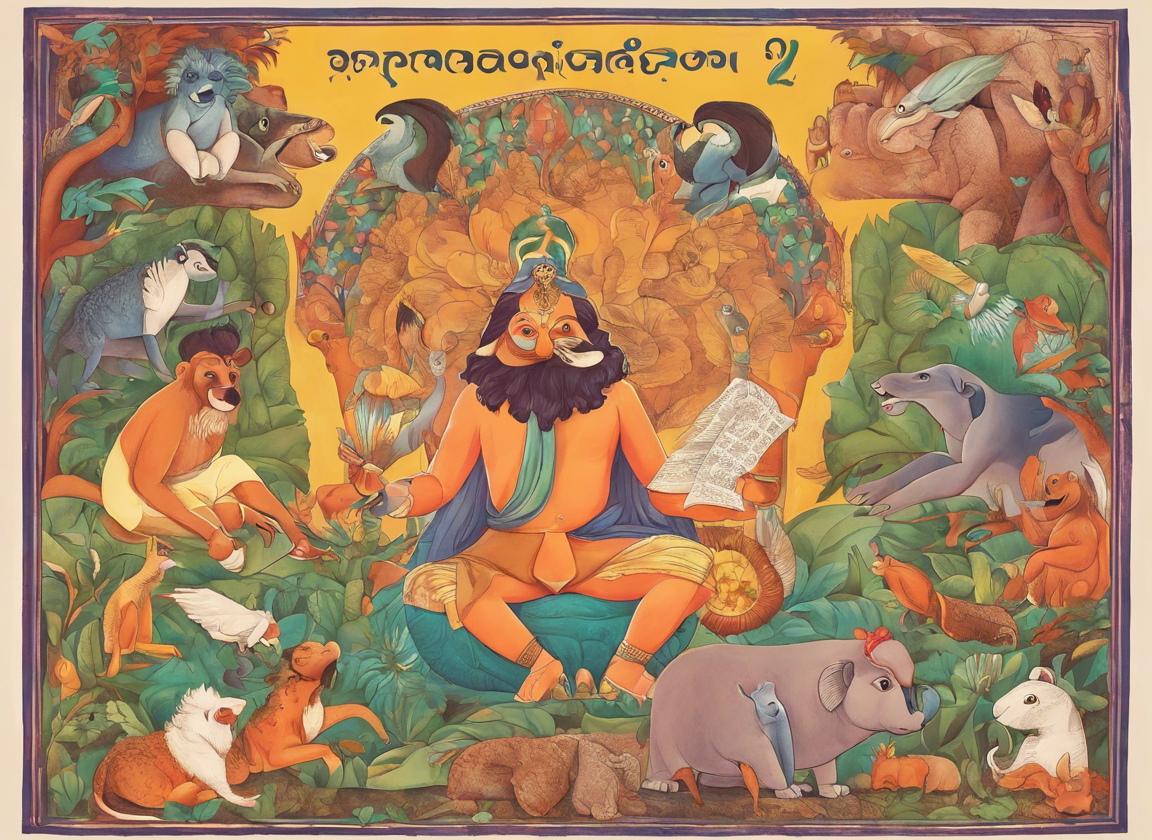Reviving Panchatantra: A 21st Century Adaptation

In our fast-paced digital age, the timeless wisdom of ancient storytelling continues to captivate and enlighten audiences across the globe. One such ancient treasure is the Panchatantra, a collection of interwoven animal fables that originated in ancient India. Known for its moral lessons and practical wisdom, the Panchatantra has stood the test of time, transcending cultural boundaries and generations. In this blog post, we delve into the essence of the Panchatantra tales, explore their significance in the modern world, and discuss the relevance of reviving these tales for a 21st-century audience.
Understanding the Panchatantra
The word ‘Panchatantra’ translates to “Five Treatises” in Sanskrit, referring to the five volumes that make up this legendary collection of stories. Believed to have been composed by Vishnu Sharma around 300 BCE, the Panchatantra is a work of literature that has been cherished for centuries for its profound insights into human nature, relationships, and societal dynamics.
Themes and Lessons
One of the key features of the Panchatantra is its use of animal characters to convey moral principles and practical wisdom. Through the antics and adventures of creatures like the wise Brahminical bird, the clever jackal, and the arrogant lion, the Panchatantra imparts timeless lessons on topics such as:
- Leadership and Governance: The importance of wisdom, consultation, and strategic thinking in effective leadership.
- Friendship and Betrayal: Exploring themes of loyalty, trust, and the consequences of deceit.
- Learning from Mistakes: Encouraging self-reflection, adaptability, and the ability to learn from past errors.
- The Power of Stories: Demonstrating how narratives can convey complex ideas, inspire change, and impart valuable lessons.
Relevance in the Modern World
Despite being thousands of years old, the Panchatantra remains relevant in today’s society. Its universal themes and profound insights into human behavior continue to offer valuable guidance in navigating the complexities of the contemporary world. In a time marked by rapid technological advancements, social upheaval, and ethical dilemmas, the wisdom of the Panchatantra can serve as a guiding light for individuals, leaders, and communities alike.
Reviving the Panchatantra for the 21st Century
Adapting the Panchatantra for the modern audience involves translating its timeless lessons and moral narratives into a format that resonates with contemporary sensibilities. Here are some ways in which the Panchatantra can be revitalized for the 21st century:
- Digital Storytelling: Leveraging animation, interactive apps, and online platforms to bring the Panchatantra tales to life for a tech-savvy audience.
- Inclusive Storytelling: Updating the original narratives to reflect diverse cultures, perspectives, and identities, making the lessons more accessible and inclusive.
- Educational Curriculum: Integrating Panchatantra stories into school curricula to teach values, ethics, and critical thinking skills to a new generation of learners.
- Business and Leadership Training: Drawing parallels between the Panchatantra tales and modern-day business challenges to impart leadership lessons, strategic thinking, and ethical decision-making.
- Literary Adaptations: Encouraging contemporary writers, illustrators, and filmmakers to reinterpret the Panchatantra stories through books, graphic novels, films, and other creative mediums.
Frequently Asked Questions (FAQs)
- What is the significance of the Panchatantra in Indian culture?
-
The Panchatantra holds a special place in Indian cultural heritage as a timeless repository of moral values, practical wisdom, and literary excellence.
-
Are the lessons from the Panchatantra applicable to all age groups?
-
Yes, the moral lessons and practical wisdom found in the Panchatantra are relevant and valuable for individuals of all ages.
-
How can the Panchatantra stories be used in educational settings?
-
Panchatantra stories can be used in schools to teach moral values, critical thinking, and empathy, fostering a holistic learning experience.
-
Is there a modern-day equivalent of the Panchatantra in other cultures?
-
Yes, various cultures around the world have their own collections of fables and moral stories that serve a similar purpose to the Panchatantra.
-
Can the lessons from the Panchatantra be applied to contemporary global issues?
- Absolutely, the universal themes and ethical dilemmas presented in the Panchatantra can offer valuable insights into addressing modern-day challenges on a global scale.
In conclusion, the timeless wisdom of the Panchatantra continues to resonate in the hearts and minds of individuals seeking guidance, inspiration, and moral clarity. By reviving and adapting these ancient tales for the 21st century, we can ensure that the legacy of the Panchatantra endures, enriching lives and shaping minds for generations to come.